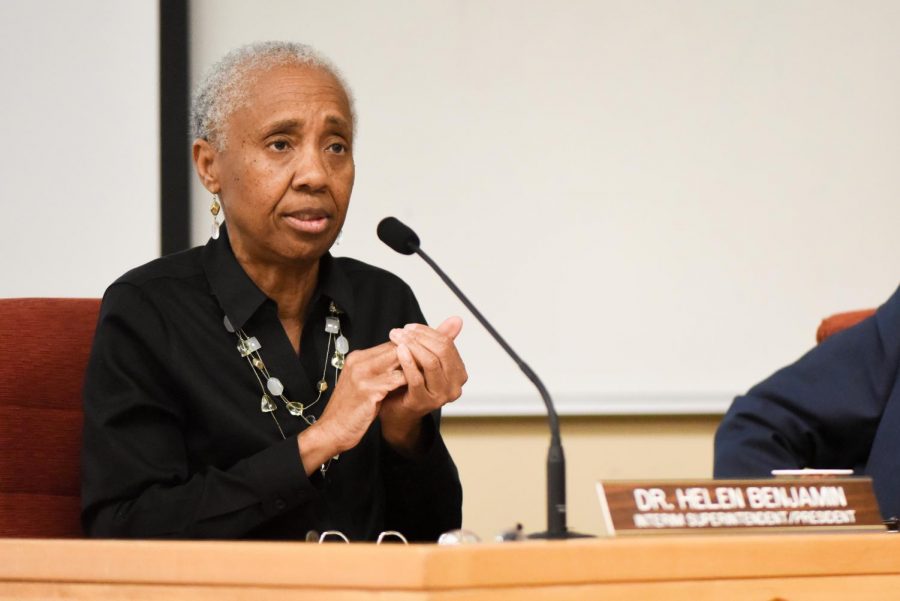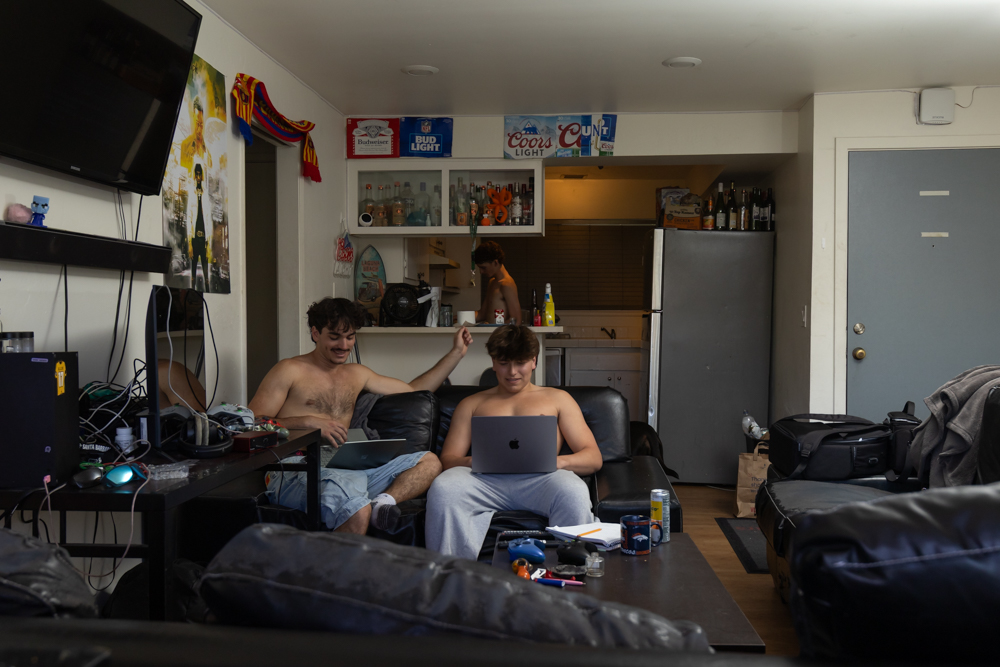“Tell me everything about yourself. What is your major? How long have you been at this college? What are your career goals?”
Of all the interviews I’ve conducted, this was the first time I was the one being questioned. We hadn’t even shook hands yet.
Dr. Helen Benjamin, City College’s new interim superintendent-president, moved into her new office just over a week ago— but the mood of the college has already changed.
For the next nine months, Benjamin will bring her unconventional student-centric style of leadership to the college’s top administrative post. She retired from her 27-year-career with Contra Costa Community College District in 2016 where she held several different positions before serving as the chancellor of the district for her remaining 11 years.
Benjamin was the first woman and first African-American to lead the Contra Costa district. She used the position to further propel her efforts in supporting students of color and those who are economically disadvantaged.
“Many people talk about equity, but Helen embodies it,” said Mehdizadeh Mojdeh, Benjamin’s long-time colleague who currently serves as the executive vice chancellor of education and technology at the Contra Costa College District.
“She lives and breathes equity.”
Born in Louisiana but raised in Texas, Benjamin said she initially wanted to be a nurse before realizing education was her true calling. She worked as a Dallas public school teacher in the ‘80’s and rose through the ranks, where she eventually found herself in love with community colleges because of their “egalitarian” nature.
“[Community colleges] provide education and opportunity to students who traditionally wouldn’t have access,” she said. “It truly opens doors.”
Benjamin’s career spans more than 40 years, during which she took her passion for equity in education to the highest levels. She served as the president of the California Community Colleges CEOs and the president of the board of the Community College League of California.
In addition, she was the chair of the California Promise Leadership Team, which aims to support college access and completion, especially for low-income students in communities that don’t promote college education.
“I want to get back to the mission statement,” Benjamin said about her main priority in leading City College. “Sometimes when we’re doing the work, we forget about the vision.
“It says we promote global responsibility and foster opportunity. That’s what we’re here for.”
And in the midst of what is arguably City College’s most tumultuous year – loaded with protests over racial, gender and other equity controversies – some call Benjamin’s commitment to global responsibility the long-awaited antidote.
“She’s only been with us for a week but it already feels much longer,” said Trustee Jonathan Abboud. “She exudes leadership… she is exactly what the college needs right now.”
Benjamin’s leadership style involves heavy involvement with students, an approach high-level administrators typically steer clear of. To her, the only way to make effective decisions on behalf of students is to be on their “level” and understand their day-to-day struggle.
“SBCC is very lucky to have her,” Mojdeh said about her experience working under Benjamin. “…She always made time for students. She took time out of her busy schedule and actually built lasting relationships with them.”
And with barely a week under her belt, Benjamin has already promised exactly that to her new student body.
“Please feel free to stop by the office,” Benjamin wrote in her first all-campus email. “Introduce yourself in the hallway or on campus; invite me to your office or to a meeting. We have much to do, and I want to connect personally with as many of you as possible.”
She also announced in a separate email that she will hold regular office hours to meet with students, send out weekly updates to the campus community to keep them informed on issues and decisions, and set up meetings to meet all campus employees over the next two weeks.
When asked about her plans to remedy the pain marginalized students and faculty have spoken out about in recent months, Benjamin is sticking to her tried-and-true methods.
“I don’t want to shake anything up,” she said. “I want to meet with these students one-on-one. So far, I’ve only heard about it second-hand. I need to hear it from them directly.”
Despite her short time with the college, though, she said she is halting the anti-racism work that began in the fall and late spring because there is too much “tension, enmity and even meanness surrounding certain issues.” Following her promise to conduct a “campus climate” survey, she said she will continue building action plans with campus governance groups.
“As to racial-related issues that have roiled our campus, my impression is that she has both the capacity and the courage to show us a way forward,” said Patricia Stark, Academic Senate President.
“I already get the sense that I’ve much to learn from her, that all of us faculty can learn from her if we give her the chance,” Stark said about her initial interactions with Benjamin. “She possesses high regard for our shared governance and for the role and reputation of our Academic Senate.”
The search for a permanent superintendent-president will be extensive, and the magna cum laude graduate made it clear that she will not be in the running as she will instead return to Texas to retire and live near her family and loved ones come December.
Until then, if you see Benjamin on campus, she wants to know what you have to say, and she’ll probably even have a few questions for you.




![Milton Alejandro Lopez Plascencia holds a flag showcasing the United States and Mexico on Feb. 7 in Santa Barbara, Calif. “It’s heartbreaking to see what is happening all across the country,” Lopez Plascencia said. “I [want] my voice to be heard by the community.”](https://www.thechannels.org/wp-content/uploads/2025/05/MGSImmigration-1-1200x800.jpg)


![The new Dean of Social Science, Fine Arts, Humanities and English, Eric Hoffman beams on May 2 in Santa Barbara, Calif. "My major professor in college [inspired] me," Hoffman said. "You can really have a positive impact on people's lives in education."](https://www.thechannels.org/wp-content/uploads/2025/05/MGSHoffman-2-1200x800.jpg)







